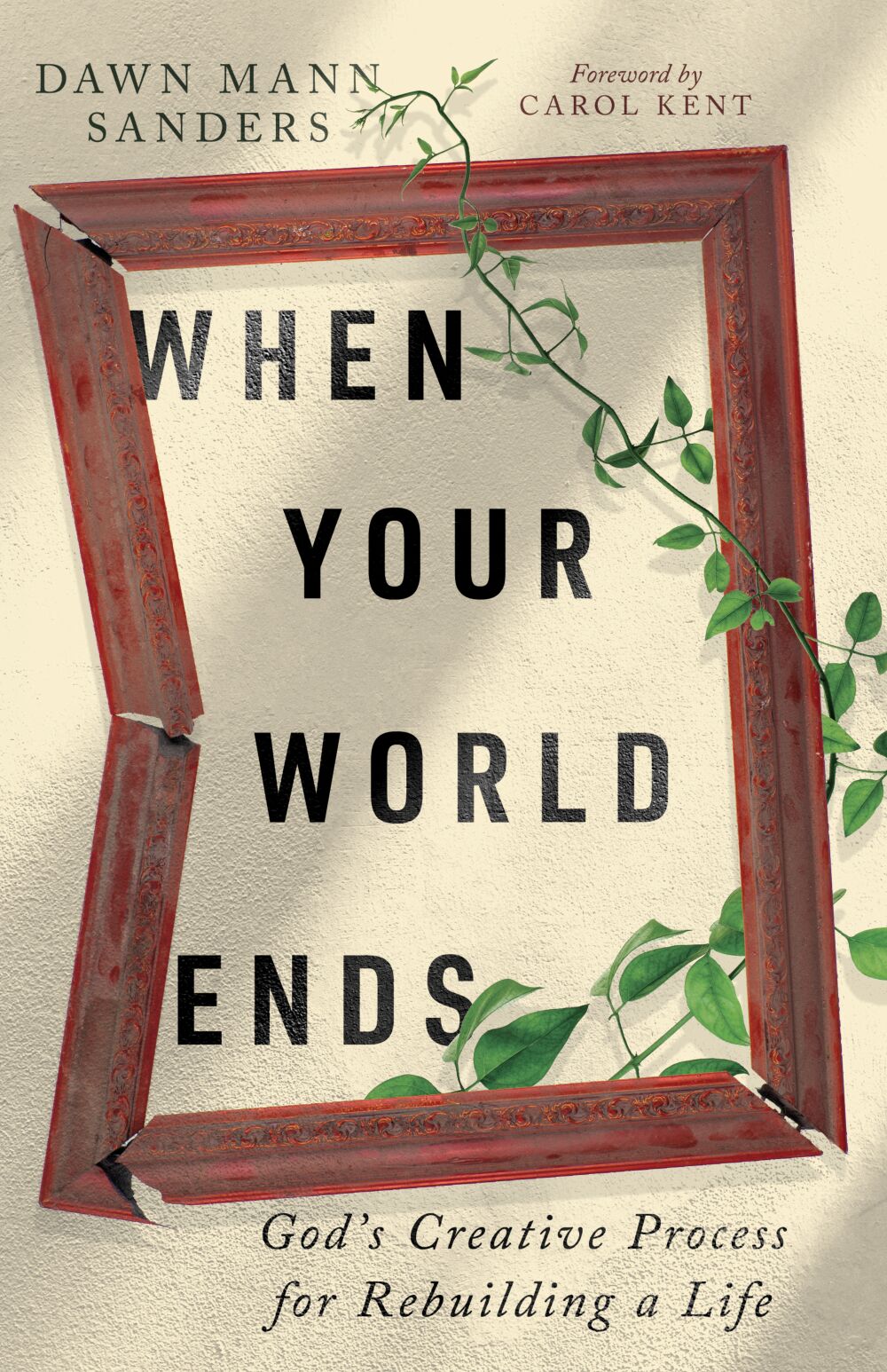Both of my parents were children during the Great Depression, a time the History Channel calls “the worst economic downturn in the history of the industrialized world.” Though they both experienced the Great Depression, because of their location, they had two very different experiences.
Raised in a city in upstate New York, my father encountered the bread lines. He recounted standing in line for hours just to receive a bag of salt and a bag of onions, then having nothing but onion soup for days. My mother, on the other hand, lived on a farm in Georgia. Since they could grow their own food, her family didn’t starve, but food was about all they had.
A period of extreme progress was followed by intense lack.
The History Channel calls the Great Depression a “downturn” because in the years preceding the Great Depression, life in America was booming. The 1920s were dubbed the “Roaring Twenties” to memorialize the increase experienced that decade. Then, in a tragic switch of events, like the Great Depression and the Dust Bowl (a severe drought), caused the 1930s to be called the “Dirty Thirties.”
Basically, a period of extreme progress was followed by intense lack.
Part 11 of How to Respond When Life Happens
The first verse in the book of Ruth mentions three locations: Bethlehem, Judah, and Moab. Therefore, in today’s post, we visit these three locations and their meanings, making this post Part 11 of our deep dive into the book of Ruth on How to Respond When Life Happens. I hope it blesses you.
Now it came to pass, in the days when the judges ruled, that there was a famine in the land. And a certain man of Bethlehem, Judah, went to dwell in the country of Moab, he and his wife and his two sons.
~ Ruth 1:1
Bethlehem in the Book of Ruth
The nation of Israel experienced a similarly stark transition to the one I described in today’s introduction—a transition from extreme progress to intense lack. Under Joshua’s leadership, the children of Israel entered the Promised Land—a land touted to overflow with milk and honey. As they successfully fought to regain their territory, their experience of the abundance the land had to offer increased with each victory.
However, following Joshua’s death, the nation of Israel experienced a season of chaos, leadership churn, and famine. The children of Israel finally enter the Promised Land, but aren’t experiencing the promise. This contrast provides the framework for two things I see about Bethlehem in the book of Ruth:
Bethlehem: A Barren Place
Our main characters’ hometown of Bethlehem sparked today’s conversation on extreme progress followed by intense lack. You see, in the Hebrew, the name Bethlehem means house of bread or granary (storehouse). Bethlehem got its name from being a rich agricultural community where they grew wheat and barley (Ruth 1:22).
As an agricultural community, normally Bethlehem was the epitome of the land of milk and honey—the Promised Land. Yet, instead of its usual bounty resulting in plenty of food, the fields of Bethlehem lay barren.
The fields of Bethlehem lay barren. The cupboards in the house of bread were bare.
In light of my mother’s experience living on a farm during the famine resulting from the Dust Bowl, that’s saying something. During Israel’s famine in the book of Ruth, the rich agricultural region of Bethlehem was unable to feed its citizens. The cupboards in the house of bread were bare.
This famine was severe—so severe that normally plentiful areas were now barren, and storehouses, where food was stocked for such an event, were bare too.
Bethlehem: A Confusing Place
So, a normally fertile place—Bethlehem—was now barren. I imagine the whole situation confused Elimelech, Naomi and their sons. When I encountered a similar experience, it confused me.
When I married Reggie, I thought I’d entered my Promised Land—my fertile place—only to experience two miscarriages, then the death of my husband. After our first miscarriage, we were extremely disappointed but not shocked. Miscarriages happen, and far more often than we knew, so we didn’t question God. In fact, our first miscarriage strengthened our faith because surely God wouldn’t allow us to experience another, let alone a consecutive miscarriage. Thus, the second, consecutive miscarriage was crushing.
Why would the Lord heal me, deliver me, or bring me through that first disappointment just to abandon me now? Share on XWhy would the Lord heal me, deliver me, or bring me through that first disappointment just to abandon me now? Even though Deuteronomy 31:6 says, “He will never leave us nor forsake us,” it feels like He has, right? Jesus, who was tempted in all things as we are, felt it too. Matthew 27:46 shows us Jesus’ humanity as He cried out from the cross, “My God, My God, why have You forsaken Me?”
The whole situation confused me, causing me to question God.
That might be you too. Perhaps you entered your Promised Land only to encounter one devastating event after another. You could be dealing with multiple, consecutive, or simultaneous traumas. You could be questioning God’s decisions for your life—decisions with which you now have to live. Like me, you may be wondering how to begin creating your new life, but you have no idea where to start. You may feel confused.
Judah in the Book of Ruth
The town of Bethlehem lay in the northern region of Judah. Judah was the fourth son of Jacob. Thus, Judah’s descendants received a portion of the Promised Land when they returned following the captivity. In fact, they were the first to fight for their territory “in the days when the judges ruled”—the period between Joshua’s death and King Saul’s reign (Judges 1:1-2). Judah was also the first to fail in their quest to recover all the enemy stole from them. In light of this, I’m not surprised the famine throughout Judah, including Bethlehem, was severe.
Judah failed to fully trust God. Rather than fight alone as God directed, Judah asked Simeon to join them, which Simeon did. This choice began Israel’s cycle of disobedience, defeat, distress, deliverance and their journey of receiving less than God’s best. They received less, not because God wasn’t able or willing to provide more, but because of their inability to trust God to do so.
Judah: A Praiseworthy Place
Like the territory his people inherited, Judah began on a high note. In the Hebrew, the name Judah means “praise” or “object of praise.” Judah’s birth brought praise to his mother Leah’s lips. Her reaction to his birth contrasted with her response to the births of his brothers: Reuben, Simeon, and Levi.
By focusing on God, your perspective will change. Share on XWhen Leah gave birth to her first three sons, her focus was on her husband and his lack of love for her. By the time Judah arrived, Leah had learned to focus on God and focusing on God caused Leah to praise Him for the birth of her son.
Leah’s situation had not changed—Jacob still loved Rachel more than Leah, but Leah’s perspective had changed. She now saw God’s love as all the love she needed. Recognizing that caused her to praise and rejoice in her son’s birth. Leah could praise God because she’d learned to trust Him that she would be okay with or without Jacob’s love. It was God’s love that sustained Leah and she learned to trust that.
Judah: A Pleasing Place
As confused as I was by the lack of fertility in my life at the time of Reggie’s death, I still trusted God. I didn’t know where I would end up on this journey, but I knew as long as I was with God, it would be okay—I would be okay. I still don’t know everywhere this journey will take me, but I still know that as long as I travel with God, I’ll be okay. Today, I’m more than okay. Today, I’m happy.
As long as I was with God, I would be okay.
My situation hasn’t changed any more than Leah’s did. Reggie is still dead. My husband is no longer with me. My situation didn’t change, but my focus did. In my confusion, I focused on God and He made an intolerable situation tolerable. He didn’t make the situation less confusing. I can’t comprehend what is humanly incomprehensible. So, I chose to look past the confusion. I chose to see God, who is bigger than my situation and my confusion combined.
Now, I’m pleased with my life. More importantly, by making my goal creating a life He loves and I enjoy, I’m pleasing Him. Hebrews 11:6 says:
But without faith it is impossible to please Him, for he who comes to God must believe that He is, and that He is a rewarder of those who diligently seek Him.
And God honored my faith by allowing me to create a new life—one that pleases us both.
Moab in the Book of Ruth
Moab has a messy history, especially in relation to Israel. First, Moab originated from the incestuous union between Lot and his oldest daughter. You see, following the destruction of Sodom and Gomorrah, and Lot’s wife turning to salt, it appeared to Lot’s oldest daughter that their father might die without an heir. Therefore, she concocted a scheme to get him intoxicated, so she and her younger sister could become impregnated by him. As a result, Lot’s oldest daughter had a son and named him Moab.
Then, when the children of Israel returned to Canaan after their captivity in Egypt, Balak, king of the Moabites at the time, plotted against Israel by hiring Balaam to curse Israel. You can’t curse what God has blessed, so Balak’s plot didn’t work. At which point, Balaam counseled the Moabite women to seduce Israel’s men.
Needless to say, neither the Lot story nor Israel’s direct experience during Balak’s reign left the nation of Israel with warm fuzzy feelings towards Moab. It was with that history that Elimelech guided his family into Moab.
Moab: A Hostile Place
The opposition between Israel and Moab continued into “the days when the judges ruled.” So, Moab and Israel were clearly enemies at that time. Yet, Elimelech risked going into hostile territory in search of relief from the famine in Israel.
Talk about going the wrong way!
Furthermore, to reach Moab from Bethlehem, Elimelech had to hike his family through the Jericho pass. This journey took them back across the Jordan River and back into the wilderness, returning them to that from which God had delivered them. Talk about going the wrong way!
God puts up all these obstacles to show us going back is clearly not the direction to go. Yet, all too often, we attempt the journey all the same. Along the way, we lose parts of ourselves, and if we aren’t careful, like Naomi, we can lose parts of our family too—our physical family or our spiritual family.
Moab: An Indulgent Place
My journey back towards the bondage of Egypt was by way of overindulgence. I’m an emotional eater with a penchant for sugar. The pain of losing Reggie was so intense, so overwhelming, that I found solace in food, mainly sweets. And hurting more than I ever had before, I reached the highest weight I’d ever weighed before. At the time, I felt like food was one of the few joys I had left in life. Now, I realize that, like Elimelech, I was going the wrong way.
Rather than maximize my time with God, I turned to food.
Reggie’s death had left massive gaps in my life. Ironically, one of those gaps was in my spiritual life, and unfortunately, I didn’t fill them all with God, especially in the days immediately following his passing. Our faith was something Reggie and I shared. Consequently, in the beginning, time spent with God reminded me of my loss. So, rather than maximize my time with God, I turned to food.
I returned to filling my gaps with God. Share on XThat was a mistake. The problem is humanity “shall not live by bread alone, but by every word that proceeds from the mouth of God” (Matthew 4:4). When I realized my mistake, I returned to filling my gaps with God. As a result, I lost over 60 pounds.
Again, God honored my obedience. Previously, I thought food was one of the few joys I had left. Now, I know the joy of the Lord is my strength. And that contrast has made all the difference.
As you can see, the three locations in the book of Ruth are riddled with contrasts:
- Bethlehem – Abundance vs. lack
- Judah – A place of praise vs. a place of pain
- Moab – A wrong direction vs. a correct direction
Contrasts are gaps—gaps between where we are and where God would have us to be. When faced with a gap, my study of Ruth has taught me that one response will never lead me wrong: Fill all gaps with God. Then, if something else is needed (i.e., food, perspective or direction, etc.), God will provide it. I can trust that. I can trust Him.
Until next time…
Agape—loving and loved by Jesus,
Dawn
The “How to Respond When Life Happens” Series:
- Part 1 – How to Respond When Life Happens
- Part 2 – The Freedom to Do You
- Part 3 – The Purpose of Chaos
- Part 4 – The Difference Between Felt Needs and Real Needs
- Part 5 – Who’s Ruling You? An Article about Submission
- Part 6 – Famines in the Bible
- Part 7 – The Differences Between Famines, Fasts and Feasts
- Part 8 – Famine in the Community
- Part 9 – The Meaning of the Land as Israel’s Possession
- Part 10 – What’s Important about Naomi’s Opening Situation in the Book of Ruth?
- Part 11 – Three Locations in the Book of Ruth
- Part 12 – Traveling in the Book of Ruth vs. Now
- Part 13 – Naomi’s Family’s Names in the Book of Ruth







